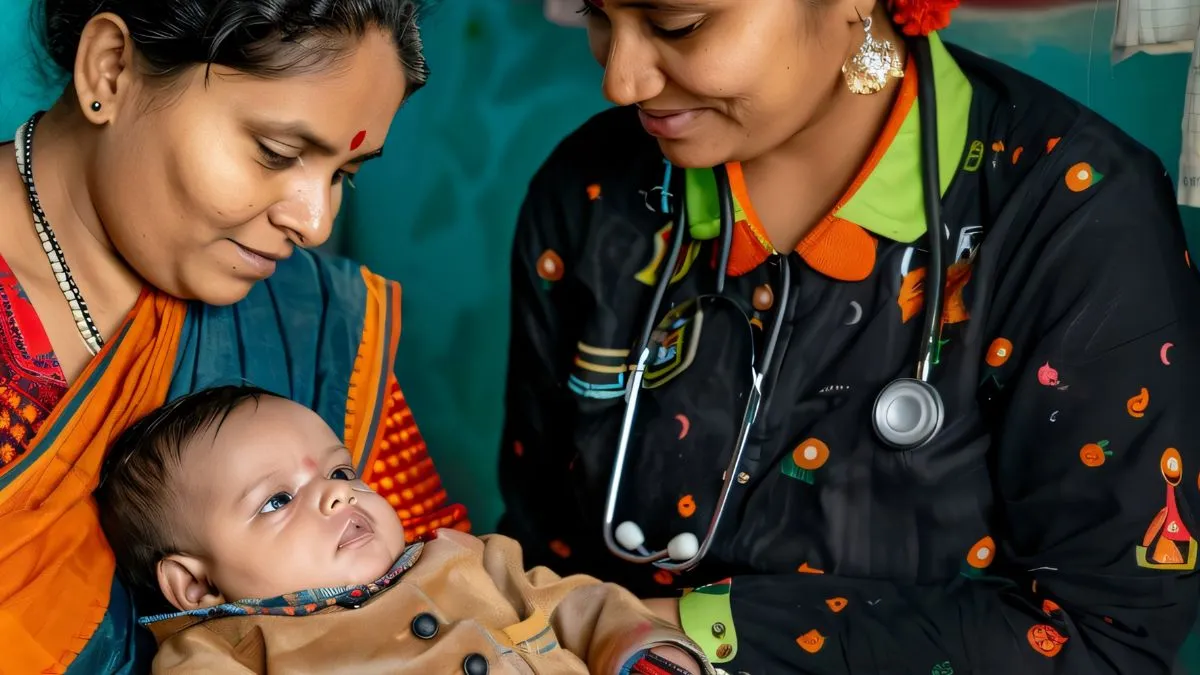- By Bornika Das
- Thu, 28 Aug 2025 08:22 PM (IST)
- Source:JND
In rural India, the path to parenthood is usually much more complex than a medical report. For most couples, infertility is not diagnosed as a health issue that needs professional treatment but as an issue of fate, social status, or even self-defeat. Low awareness, reinforced by deep-rooted myths surrounding IVF and fertility treatments, deters many families from seeking prompt medical care. Instead, most spend years waiting on local practitioners or family doctors, putting off the prospect of good care. And by the time they do turn to medical treatment, valuable years are gone.
Yet even beyond awareness, the fight is deeper. Fertility treatment in small towns is shrouded in stigma, silence, and logistical obstacles that make the process emotionally and socially draining. Women usually take the full force of the blame, with families and communities questioning their worth rather than standing by them during treatment. All over the world, having to travel far distances to access fertility centres, juggling financial costs, and negotiating family support only add to the obstacles. In conversation with The Daily Jagran, Dr Akriti Gupta, Fertility Specialist at Birla Fertility & IVF, Gorakhpur, shares how infertility has become not only a health condition but a secret struggle against firmly grounded cultural and social obstacles.
Awareness
The first and perhaps most pressing issue is awareness, or lack of it. Many couples spend nearly five to eight years trying for a child, without ever seeking the right medical support. Some get married early, and by the time they are 30, they have already spent a decade visiting local healers or hopping from one general practitioner to another. The concept that infertility is a medical condition with organised treatment modalities is still not conventional. Dr Akriti Gupta states, “Even the term ‘IVF’ is misinterpreted – most think it includes the use of donor sperm or adoption-like procedures, and this triggers hesitation and mistrust.”
ALSO READ: Do Birth Control Pills Affect Fertility? Doctor Shares Truth Backed By Science
Social Stigma
Social stigma is another powerful deterrent. The mere act of walking into an IVF clinic invites speculation from neighbours or relatives. Dr Akriti Gupta mentions, “In some communities, especially more conservative ones, there's a perception that seeking fertility treatment means something is ‘wrong’ with the woman.” Some families even suggest remarriage instead of medical help. The burden of secrecy and shame keeps many from even considering evaluation, let alone treatment.

Stigma About Infertility In Rural Areas (Image Credits: Canva)
Physical Access
Then, there’s the challenge of physical access. Couples have to travel 70–90 km just to reach a fertility centre. Dr Akriti Gupta adds, “This doesn’t just involve travel time but also arranging transport, taking time off work, and bearing travel costs throughout the IVF cycle.” Add to this the financial strain of treatment itself, leading to delayed care.
ALSO READ: IVF Success In India: Doctor Explains What Every Couple Needs To Know Before Starting
Even when a couple is ready and willing, joint family dynamics can get in the way. Many women can’t seek treatment without the approval of their in-laws. And often, that approval is rare. In such settings, fertility care becomes as much a social negotiation as it is a medical decision.
And yet, change is quietly but surely underway – through local camps, educational sessions in a care model that understands the emotional and cultural realities of people.
Access is more than proximity; it's awareness, dignity, and trust. With the right system in place, fertility care can be less intimidating and more empowering for all couples, regardless of where they live.

